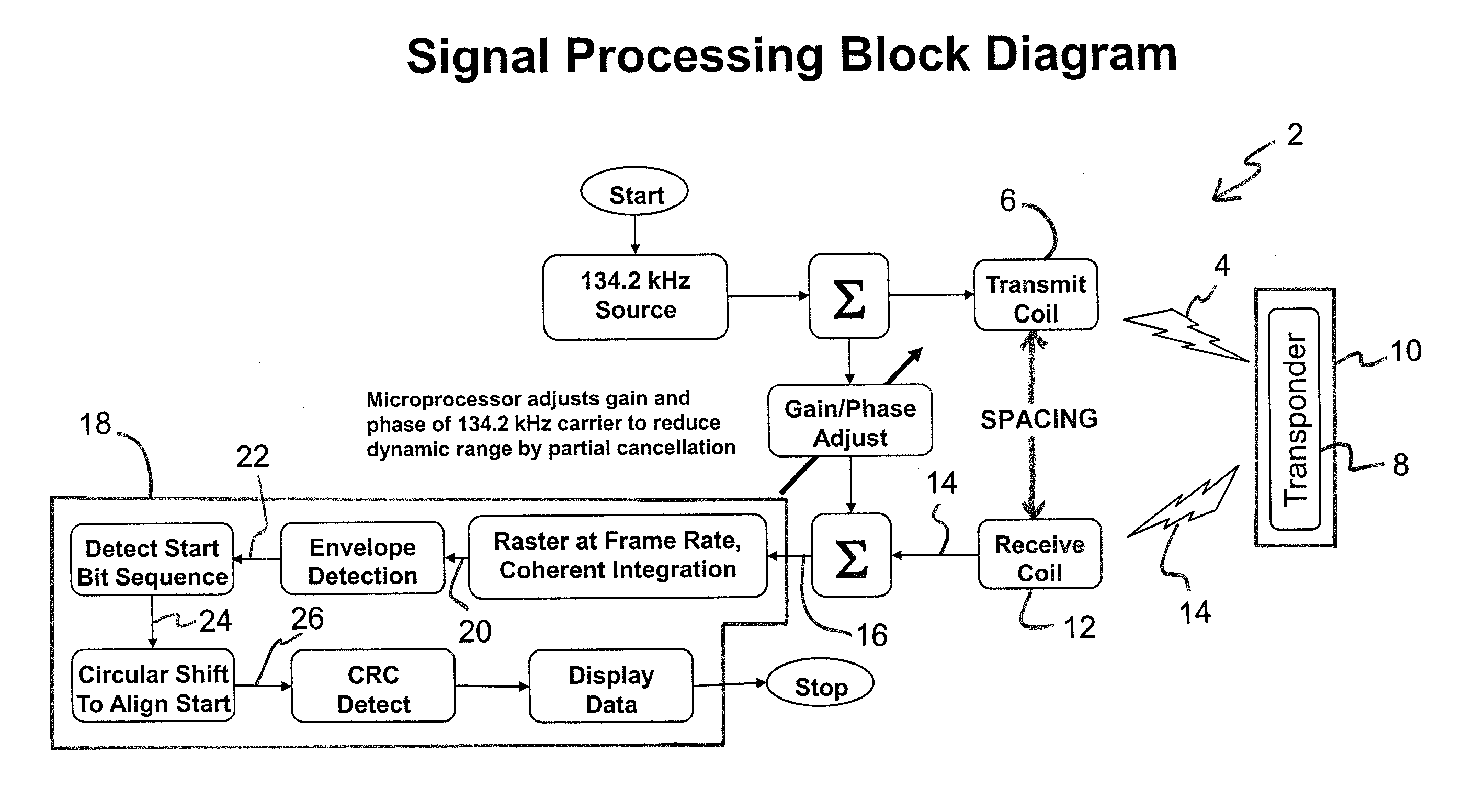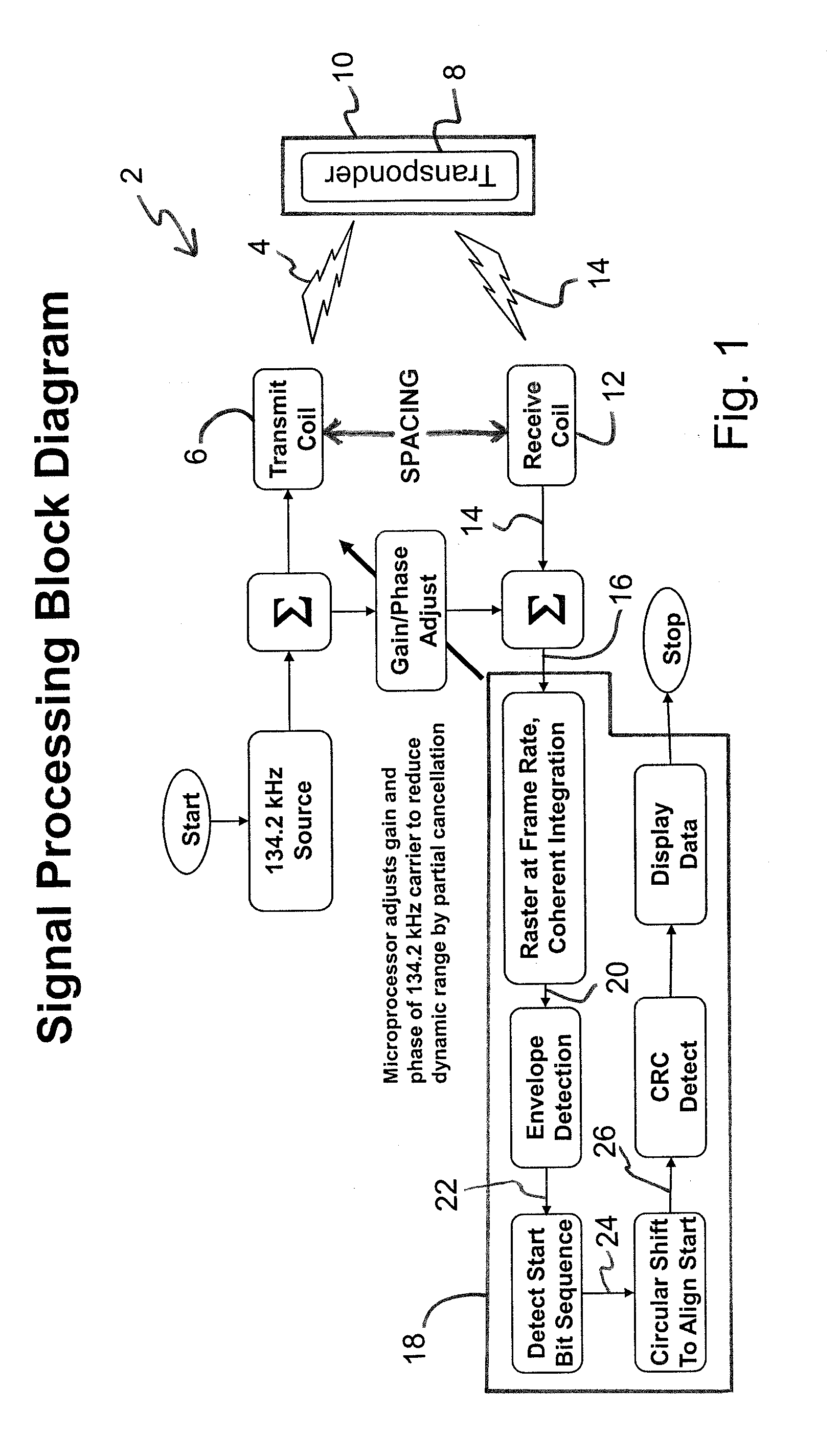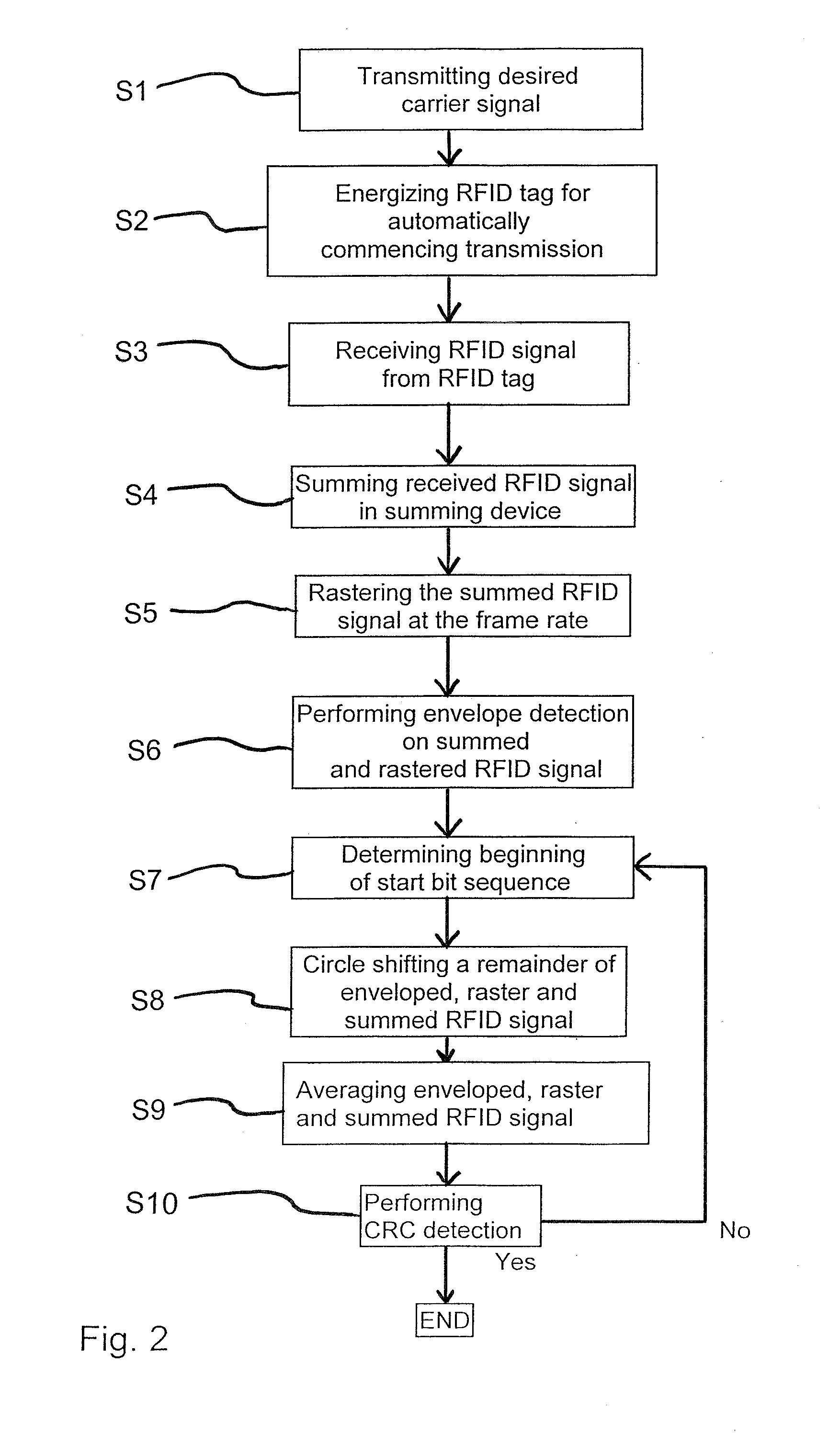Method and system for improving reading range of fdx RFID tags
a technology of rfid tags and reading ranges, applied in the field of methods and systems for improving the reading range of rfid tags, to achieve the effect of increasing voltage and current, facilitating the exciting of rfid tags, and strong carrier signals
- Summary
- Abstract
- Description
- Claims
- Application Information
AI Technical Summary
Benefits of technology
Problems solved by technology
Method used
Image
Examples
Embodiment Construction
[0038]As is conventional in the art, the RFID tag contains an encoded data field, e.g., unique serial number typically comprising 128 characters of relevant information (response message) and each character of the data field comprises a sequence of ones (“1”) and / or zeroes (“0”) of a binary code. As is conventional in the art, the data field of a RFID tag typically comprises a start bit sequence (e.g., typically 11 bits, for example, 00000000001), 38 ID bits, 10 country code bits (generally according to ISO 3166), 1 extra application bit, 14 reserved bits, 1 animal bit, 16 CCITT CRC over the previous bits, and 24 application bits. It is to be appreciated that after the initial 11 bits, which comprise the start bit sequence, a framing bit (‘1’) is typically sent after every 8 data bits.
[0039]During interrogation of the RFID tag, once the RFID tag is sufficiently energized by a RFID scanner, reader or interrogator, the internal circuitry or transponder of the RFID tag will then commen...
PUM
 Login to View More
Login to View More Abstract
Description
Claims
Application Information
 Login to View More
Login to View More - R&D
- Intellectual Property
- Life Sciences
- Materials
- Tech Scout
- Unparalleled Data Quality
- Higher Quality Content
- 60% Fewer Hallucinations
Browse by: Latest US Patents, China's latest patents, Technical Efficacy Thesaurus, Application Domain, Technology Topic, Popular Technical Reports.
© 2025 PatSnap. All rights reserved.Legal|Privacy policy|Modern Slavery Act Transparency Statement|Sitemap|About US| Contact US: help@patsnap.com



